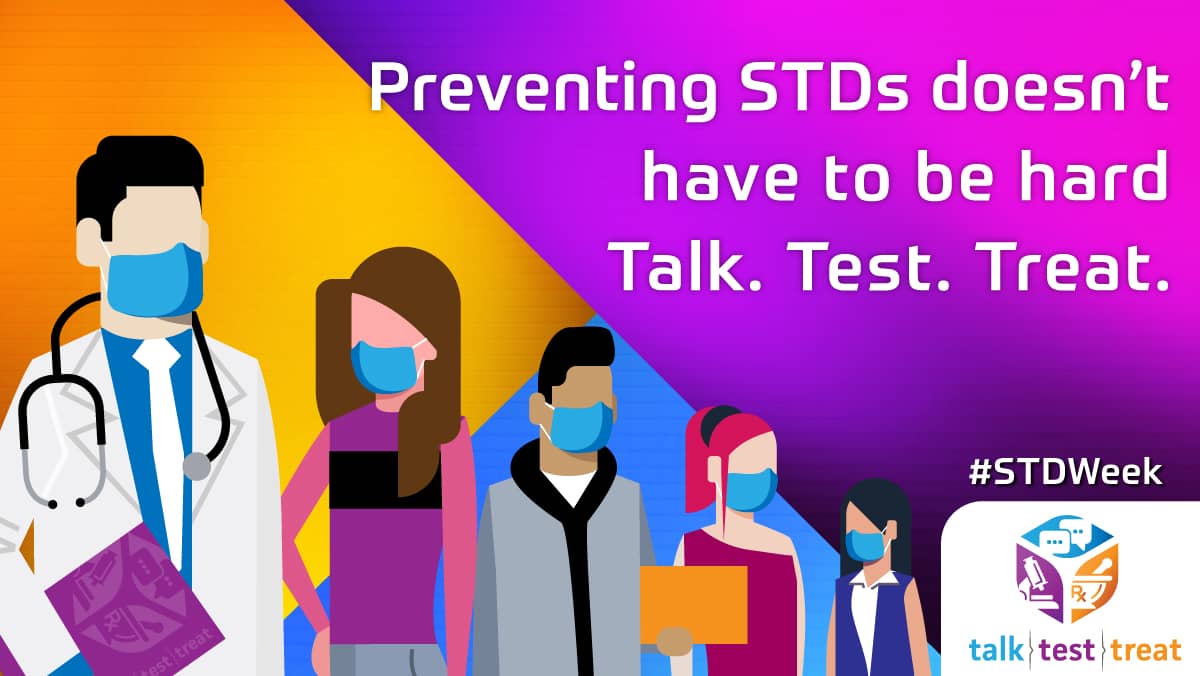Society has moved forward scientifically and culturally over the past few decades. Some areas, however, are still linked to major misconceptions, prejudice and even stigma. Sexually transmitted diseases (STDs) are one such field and the mere mention of such conditions has the power to make many people uncomfortable. To increase awareness and encourage discussions on the topic, the US declared April STD Awareness Month.
The State of STDs in Singapore
Over the past years, Singapore has observed a troublesome trend. The Singapore Department of Sexually Transmitted Infections (DSC) reported growing rates of spread, especially among the younger members of society.
Chlamydia is the most common sexually transmitted infection in Singapore. It is followed by gonorrhoea and syphilis with the highest number of infected individuals falling in the 20 to 29 age range.
In 2018 alone, there were 2,719 new chlamydia case, 2,051 gonorrhoea infections and 1,441 new cases of syphilis. The top five of STIs spread in Singapore includes genital warts and genital herpes, as well.
Unfortunately, the proportion of infected individuals in the teen to 19-year-old age range has also been growing. According to DSC, the only ways to counter such negative trends are to improve sex-ed curricula and to encourage more open and honest conversations about STIs.
Adolescents and young adults are the societal segments at highest risk due to several reasons. Singaporean society is still quite conservative when it comes to sex. A report published in the Annals of the Academy of Medicine, Singapore, suggests that the vast majority of those who engage in intercourse do not use barrier contraception like condoms. Rapidly changing morals among teens and young adults, as well as a proclivity for high risk behaviours are also to blame. Everyone Can Be a Change Ambassador
As you can see, stigma and a hush-hush attitude do not accomplish a lot. In fact, more young people than ever before have been getting STIs, regardless of the silence that adults impose on the topic.
Every single person can be an ambassador for change. Starting this April, you can engage in a few simple things that will potentially break down societal taboos and contribute to healthier attitudes towards sexual health.
For a start, educate yourself about the ways the common STIs spread and the best types of protection. We have numerous resources on the topic, including the methods of HIV prevention, general STD prevention and effective condom use.
If you have a partner, get in the habit of talking openly and honestly about STIs. Such conversations demonstrate personal responsibility and care for your significant other. There’s nothing awkward about exchanging information about sexual histories and preferences. Also, you should come up with a couple’s roadmap for ensuring sexual health in the long run (contraception use, getting tested, etc.).
Speaking of getting tested, regular STD screening is imperative for anyone who is sexually active. It’s a big misconception that only high risk individuals need to get tested. Even those in committed, monogamous relationships are at some risk. Unfortunately, people can lie and manipulate those they love. The only way to enjoy 100 per cent certainty is to get tested at least two times per year. Numerous sexual health facilities in Singapore offer such services in a reliable and confidential manner.
There’s nothing scary or embarrassing about getting tested for STDs. If you’ve never gone through the process before, the following guide will give you some idea about what to expect.
Overcoming the Sexual Health Stigma One Step at a Time
Singaporean authorities have launched many awareness campaigns over the years to combat stigmatisation and the discrimination of those who have STDs.
As an individual, however, you need to understand that STDs aren’t rare or shameful. A neighbour, a friend or a relative could be dealing with such a condition (while being too afraid to open up about it and discuss the situation).
Do educate yourself and start working on changing your attitude. Having access to reliable information is the only way to change your attitude and to start promoting acceptance on the individual level. There are still so many misconceptions about HIV transmission, living with HIV and other sexually transmitted infections. Awareness is the only way to combat such harmful stereotypes.
If you are a parent, start talking to your children about sexual health and personal responsibility. It’s important for youngsters to understand at an early age that they have agency over their bodies. When a new generation grows with a more open mindset, profound societal change becomes possible.
Are You Looking for Reliable Information?
Do you want to learn a bit more about STD/STI transmission, protecting yourself and the people you love? Are you wondering how to access 100 per cent accurate and reliable information?
Shim Clinic is a sexual health facility in Singapore that gives you access to confidential consultations, testing and treatment solutions.
As a walk-in STD Clinic in Singapore, we’re ready to meet you and help you out every single day of the week. You’ll benefit from a meeting with a highly experienced sexual health professional who’ll suggest screening or lifestyle choices bound to make you safer and healthier. Don’t hesitate to come to the clinic or contact us to inquire about topics of interest.

